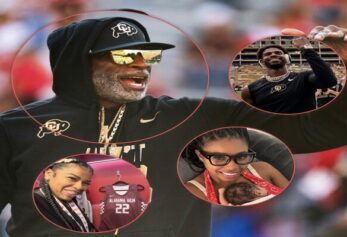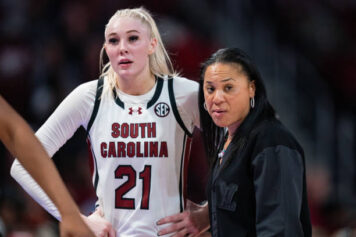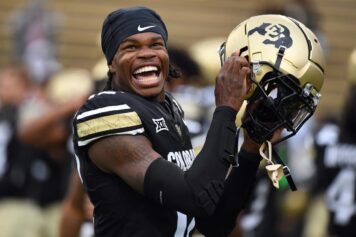2015 marks the 80th anniversary of the National Labor Relations Board (NLRB). According to their website, the organization is dedicated to protecting the rights of employees everywhere. Last week, they decided that members of the Northwestern University football team, or any other college team, isn’t worth the protection.
The NLRB said this in a press release:
In a unanimous decision, the National Labor Relations Board declined to assert jurisdiction in the case involving Northwestern University football players who receive grant-in-aid scholarships. The Board did not determine if the players were statutory employees under the National Labor Relations Act (NLRA). Instead, the board exercised its discretion not to assert jurisdiction and dismissed the representation petition filed by the union.
In the decision, the Board held that asserting jurisdiction would not promote labor stability due to the nature and structure of NCAA Division I Football Bowl Subdivision (FBS). By statute the Board does not have jurisdiction over state-run colleges and universities, which constitute 108 of the roughly 125 FBS teams. In addition, every school in the Big Ten, except Northwestern, is a state-run institution. As the NCAA and conference maintain substantial control over individual teams, the Board held that asserting jurisdiction over a single team would not promote stability in labor relations across the league.
The NLRB decided that the Wildcats werent fit to form a union. According to the NLRB, even though the demands of being a student-athlete, which is a full-time job, at one of the top universities in the country, isn’t the same. They aren’t employees, they are just students.
For all intents and purposes, the NLRB decided that the rules, which are already archaic and outdated, arent worth the trouble of looking into. Ultimately, they turned their backs on the young men, and women, who needed them to stand up to the big bully.
Remember the institution where people worked for free and their employers made bushels of money literally off of their backs? Im not talking about slavery (kind of), Im talking about the biggest cartel in sports, the NCAA.
The NCAA and fictional drug lord Tony Montana have a lot in common. They made so much money that they couldnt keep it all under wraps. The both of them had gotten too big to continue to fly under the radar. And when someone, or something makes a lot of noise, people will start to ask questions. Former UCLA standout Ed OBannon had similar questions when he saw a likeness of himself in an EA Sports video game sponsored by the NCAA.
OBannon, and 19 others, sued the NCAA and reached a settlement last month. The NCAA was ordered to pay $46 million to the former athletes they sneak dissed. The NCAA had indeed violated antitrust laws by not allowing these people to get a cut of the revenue generated from the use of their likenesses in broadcasts and video games.
During his senior season in 2013, Northwesterns quarterback Kain Colter, a team captain, wore a wristband that read “APU,” All Players United, a move his coach Pat Fitzgerald, deemed as being selfish. Before that, Colter was inspired by a class taught by Nick Dorzweiler, an instructor in the schools Chicago Field Studies program. The course was Field Studies in the Modern Workplace. According to Deadspin, the class piqued Colter’s interest as he visited a steel factory. Next, he made the juxtaposition between unions and student-athletes.
Coltor decided to meet with the College Athletes Players Association (CAPA), an organization that wants to help college players get more compensation other than scholarships and short-term medical insurance. CAPA was started by Ramogi Huma, a former UCLA linebacker. Huma was inspired by a teammate who was suspended for accepting a bag of groceries because he was hungry.
Due to Huma’s support, Colter organized one of the first of its kind in college sports. The majority of his teammates signed union cards.
We Northwestern football players are grateful for our opportunity to play football for a prestigious university and athletic program, the team said in an issued statement. However, just as other athletes who compete in multibillion dollar industries have done, we must secure and maintain comprehensive protections, by asserting the rights afforded to us under labor laws.
According to Deadspin, Huma met with Colter and his teammates in January of 2014 to sell them on forming a staff union. The plan was to file a petition to unionize during postseason play, but the Wildcats failed to qualify for a bowl game.
In February of 2014, Colter testified before the NLRB regional director in Chicago. A month later, the director ruled that Colter, and his teammates, were employees.
I know that many of you think the Northwestern team might have been barking up the wrong tree, that they already have a good thing going since they attend a world-class university for free. Reportedly, Northwestern football alums were calling up the team in order to sway the vote for a union. After all, they may not have to worry about soul-crushing student loan debt like many of their fellow classmates. Imagine the irony of a program that likes to call itself Chicagos Big Ten Team, while trying to pulling a fast one nearby a city with strong union support.
At this point in time, the NCAA has gotten an earful and people are starting to get hip to their hustle:
The Northwestern NLRB decision is one of the most logically-tortured buck-passing documents I’ve ever read.
Patrick Hruby (@patrick_hruby) August 17, 2015
NLRB says that even if college athletes are employees (still very strong evidence), they are not taking jurisdiction. DID NOT rule against
Kain Colter (@KainColter_2) August 17, 2015
One of odd union aspects to me was that a regional director of the NLRB could have so much power. Turns out, he doesn n#39;t.
Teddy Greenstein (@TeddyGreenstein) August 17, 2015
Maybe Northwestern wasnt the place to get the players union going. Due to the ruling, we will never know how they voted. After all, it appears that they dont hold the same cache to effect change like the blue blood programs such as Notre Dame, Alabama, Ohio State, SC and Michigan.
But the biggest conundrum might have to do with fear and change. If the players start to demand compensation for their efforts, then someone who is already making money will have to share some of the wealth. If that happens, the coaches, the athletic directors, and the school might lose the leverage they have over the student-athletes. The Power 5 conferences have already stepped up in terms of scholarship security, medical coverage and stipends.
Well, what it means is that there could be an appeal first, said noted Sports and Entertainment attorney Exavier Pope. Secondly, the NLRB referenced antitrust being another mechanism to accomplish Northwestern’s purpose. Jeffrey Kessler already has an antitrust suit against the NCAA alleging member schools colluded to cap college athlete grant in aid scholarships to tuition, room, and board that is over a year and a half years old.
The legal issues of NLRB was on the private school level, Pope continued. It was far more limited than we thought. We saw no movement on it on the state institution level, which has the big issue of right-to-work laws. This complicates matters greatly, as one state’s school may come on the side of unionizing and another not in the same conference. The SEC is the king of the hill of the Power 5 conferences with its only private member being Vanderbilt. Northwestern and Purdue are the Big Ten’s only private schools. Stanford and USC for Pacific 12. Baylor for the Big 12. The big fish obviously is Notre Dame.
The ruling was a huge victory for the Evanston, Illinois school and the NCAA, one the few victories the program may have this year.



